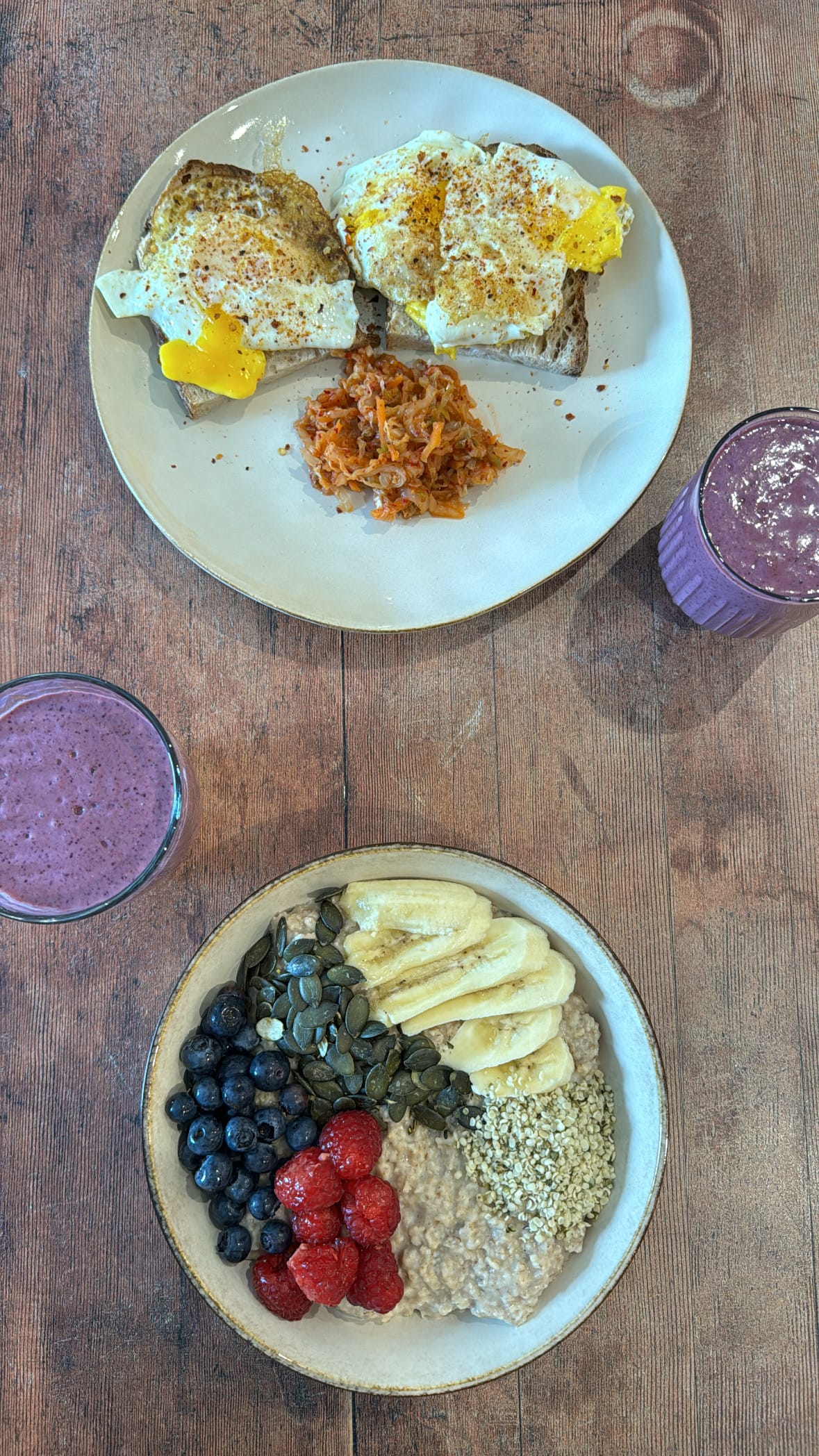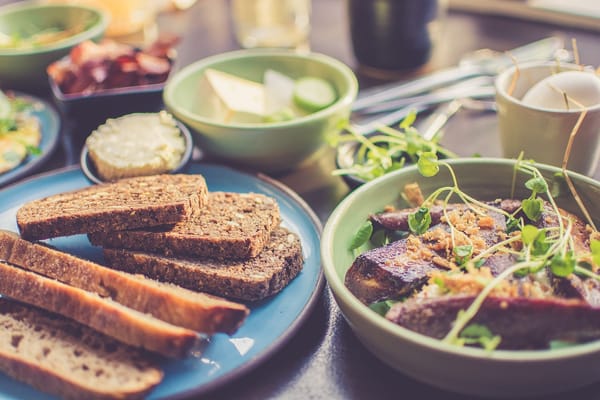Hey my friend – you'll be happy to hear that you'll be getting two emails from me this week, as there was no email last Friday.
A common question I have been getting recently is this:
"Jeff, is your wife also fully plant-based?"
It's an interesting one because it puts into spotlight how certain dietary positions can be perceived by others in the context of a romantic relationship.
There are definitely some things to consider, and when you have two people coming together in a long-term relationship, food is going to be one thing that of course crosses over in some way.
Firstly, the answer to that question is no.
My wife is not fully plant-based, nor is there an expectation from my side for her to be.
I've always spoken about how a 100% plant-based diet isn't absolutely required to achieve good health, and while that is the way that I eat and the example I aim to set, different dietary habits also achieve great results.
We eat plenty of the same meals (those being meals that are 100% plant-based), but then there are also meals that may be similar but I'll add tofu/tempeh as a source of protein, whereas she might add wild salmon, organic chicken or eggs.
It's never been a point of disagreement, and it never will be.
It does raise an interesting conversation however about how to navigate such situations when the dietary habits are different – there are 3 points to consider here.

You can eat differently, but still have similar goals and ideas around food
Believe it or not – despite dietary differences – you can still share similar principles around food.
Social media probably won't make you consider that, but actually there are more similarities than differences among people of different 'dietary tribes'.
Not to say that I consider myself or my wife to be part of a 'tribe' but the principles of getting enough protein, eating plenty of plants, focusing on whole foods, and eating in a way that supports training and health are shared between us.
The biggest issues can potentially arise when one person in the relationship values healthy eating principles, and the other does not.
With that, it's important that if you are the one who does value health, don't aggressively try to change your partner.
Just be a positive example to inspire a natural, individual change.
There are more things that make up a healthy relationship
It's easy to think that you need your partner to eat like you.
This is often very common amongst those whose reasons for shifting to an animal-free diet are for reasons related to animal welfare.
I've seen many a tweet circulating from vegans saying they would absolutely not date anyone who eats meat.
I even saw one a while back from someone who said they'd rather be with someone who sleeps with animals than someone who eats animals, which is absolutely ridiculous, but we'll leave that there.
But whilst everyone has their right to how they approach relationships, in my opinion there are plenty of other aspects that make for a healthy relationship.
Trust, respect, communication, commitment, serving the other person, and so on.
Food is not your identity
If you make your dietary habits your entire identity, they will cause more problems than they solve in your relationship.
There has to be a level of respect for the choices that your significant other makes, even if they are different to yours.
And if there are things that you absolutely see as a dealbreaker, then it's probably in your best interests to not actually be with someone who perhaps doesn't meet those.
While food is a big part of our lives, it also shouldn't be something that drives a wedge between you and your person.
Your overall relationship is way more important, trust me.

To put it simply, your relationship can and will still thrive, even if the diets are different.
Don't put too much stock into it – and in fact embrace it.
Your spouse/partner is far more than what he or she eats – and if it's health that you both seek, then embrace the similarities far more than you magnify the differences.
Thank you for reading as always – and stay healthy.
Jeff
